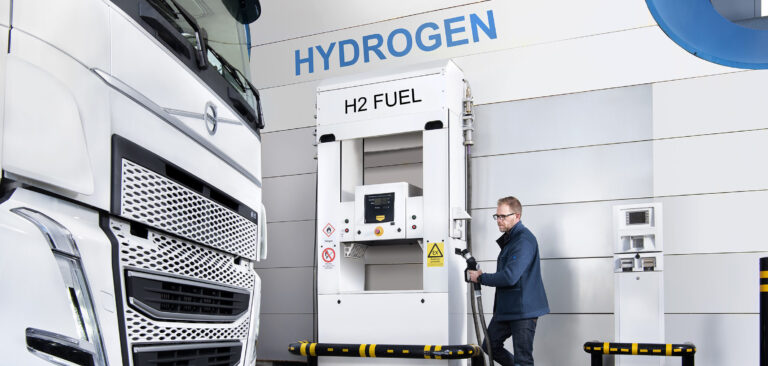The German Federal Ministry for Digital and Transport (BMDV) has approved a funding application from consortium research project HyCET (Hydrogen Combustion Engine Trucks). Led by the BMW Group, other partners of the HyCET project include Deutz, DHL Freight, Keyou, TotalEnergies Marketing Deutschland and the Volvo Group.
The project partners seek to demonstrate how trucks with hydrogen combustion engines can be a sustainable alternative for vehicles within transportation logistics. Due to its fast-filling times and versatility, the fuel is seen as having many advantages for the transportation sector. An issue the project faces, however, is the availability of infrastructure in the form of hydrogen refueling stations.
The consortium will have an investment volume of €19.5m (US$19.3m), with €11.3m (US$11.1m) funded by the BMDV. As the project progresses, the BMDV is expected to provide an additional €5.7m (US$5.6m). This funding will be used by HyCET to build two public hydrogen filling stations mainly for heavy good vehicles.
“Hydrogen technology offers us the chance to rethink mobility,” said Daniela Kluckert, Parliamentary State Secretary to the Federal Minister for Digital and Transport. “In particular, the varied demands of transport logistics call for suitable responses. Hydrogen is a good energy-storage solution for climate-friendly transportation that can supplement battery-electric mobility. The HyCET project supported by us assesses the use of hydrogen combustion engine technology for the transport of heavy goods. In this way, the results obtained from real-life operation will contribute to competition between alternative drivetrain technologies in the field of logistics.”
Over the four-year project, HyCET seeks to develop two 18-metric ton trucks and two 40-metric ton trucks both of which are set to be powered by hydrogen combustion engines. These trucks and their sustainable powertrains will then be tested by the BMW Group and Deutz within their respective logistics operations. To facilitate the vehicles, two hydrogen filling stations will be built in Leipzig and Nuremberg in Germany.
As an end user, BMW will define the key requirements for series introduction of hydrogen-powered trucks into the company’s transportation logistics at a later date. As the leader of the consortium, BMW will also set the framework for successful project implementation and is managing pilot deployment of an 18-metric ton truck at the OEM’s Leipzig plant, in addition to coordinating the technology assessment which will compare the advantages and disadvantages of the hydrogen combustion engine and other drivetrain concepts for trucks.
“As the consortium leader for the project, the BMW Group is not only showing its pioneering spirit, but also its understanding of how to think about sustainability across all areas of the company,” explained Michael Nikolaides, senior vice president, production network and supply chain management, BMW Group. “This includes testing technologies in transport logistics at an early stage and adapting products and infrastructure to new requirements.”
Engine manufacturer Deutz has already developed a 7.8-liter hydrogen engine which is running in a stationary generator, and as part of HyCET will be installed into an 18-metric ton truck to demonstrate its capabilities and practicality for transportation applications.
As a developer of hydrogen technologies, Keyou will work collaboratively with the Volvo Group on the development of a 13-liter hydrogen engine under the HyCET project. Volvo will be responsible for integrating the engine and the hydrogen tanks into two of its own 40-metric ton trucks which are currently used by DHL Freight in transportation logistics for the BMW Group.
As the transportation partner to BMW, DHL Freight will use the first trucks developed in field tests for shuttle traffic to supply the OEM’s plant in Leipzig.
TotalEnergies plans to operate up to 150 hydrogen filling stations directly or indirectly in Germany, the Netherlands, Belgium, Luxembourg and France by 2030. The hydrogen filling stations in Leipzig and Nuremberg will be a crucial part of the European long-distance hydrogen network.


